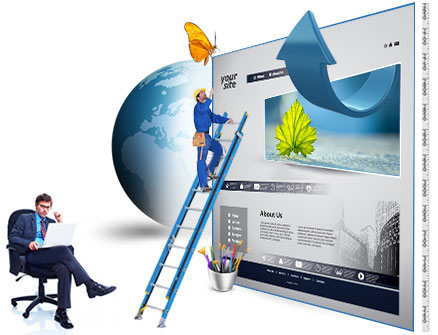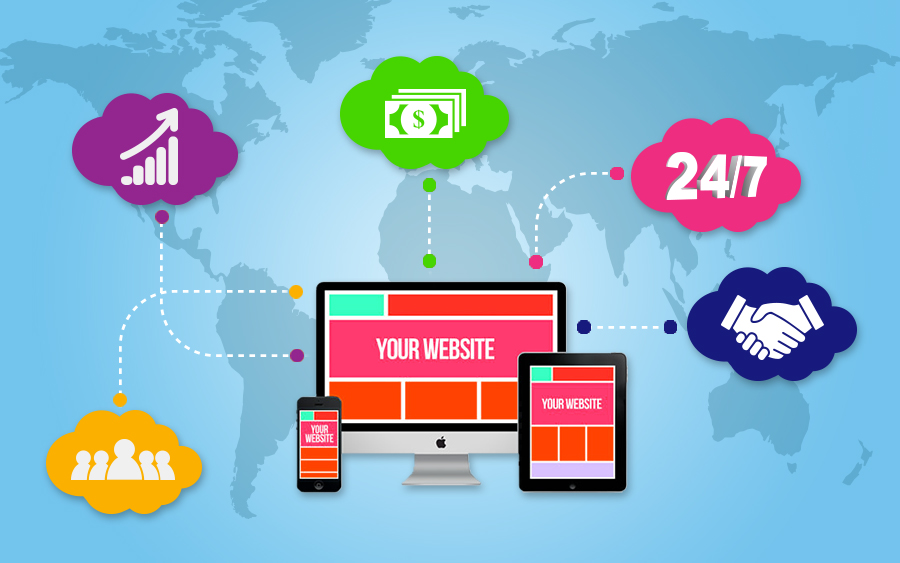by Heba Salah | May 29, 2017 | Small Business
CRM stands for “Custom Relationship Management”. The idea first started in the 90s. When it first began it was meant only for simply managing the relationships with customers. Today, it refers to methodologies, software and internet capabilities that allow companies to manage their relationships with current and potential customers. It also refers to practices, strategies s that companies use to manage and analyze customer interactions and data throughout the customer lifecycle, with the goal of improving business relationships with customers, assisting in customer retention and driving sales growth.
Thus, CRM enables you to focus on your organization’s relationships with individual people; whether they are customers, service users, colleagues or suppliers.
Benefits of CRM to your business
CRM system can help you grow your business by helping you track your history with your customers and your interactions with them. So what does it track and how can this be useful? It tracks calls made, emails sent, meetings held, presentations delivered, and even the next steps required to close deals or grow customers’ accounts. Of course this is very important to your business because tracking is the most important thing. By one click you can review every action that took place between you and your customer which enables you to foresee how to continue.
With a CRM system, you can have one place where you can store all data related to your business and your customers. You will be able to store every customer, every lead, every request, all contact information as well as the history which enables you to make personal, relevant and up-to-date approaches with your customers. All of this information is stored in a safe and organized way that makes it accessible to authorized users.
Having a CRM system, also allows you to conduct and follow your work from any place. It also helps you in increasing your sales, as it allows you to follow quality leads and reduce time wastage. This shortens the sales cycles and thus improves your win rates.
CRM systems also allows better team collaboration. All departments will be able to collaborate with each other. They will all have access to the same data. This will also enable them to share marketing ideas that are specifically targeted towards customers and leads.
CRM system can help you in concentrating on your target market. You can apply your marketing campaigns to specific leads who have a higher interest in your products and services. Email campaigns can also be personalized, which makes them more convincing and impactful.
These are some of the benefits that you can get from having a CRM system for your business.
Final advice
Finally, when you take the decision to get a CRM, you must not be hasty in such decision. First, you must be clear about your objectives, needs, and expectations, and then methodically embark on the selection process. This can will ensure that your purchase decision delivers the cost savings and enhancements you expect. The time invested in research and analysis will not be wasted time, but it will be worth it if you can find a suitable CRM application that delivers the advantages and benefits your company needs.

by Heba Salah | May 21, 2017 | IT, Small Business, Web Design
Do you have a website for your business? Do you get all the possible benefits from this website?
Few years back, the forwards-thinking business owners realized that having websites for their businesses will be a profitable marketing opportunity. This encouraged them to build their websites and host them. When they finished doing that, all was done regarding the website issue.
Nowadays, things have become more difficult and more complicated. It is no more just about having a website for your business. The internet has become overpopulated and is continuously changing. So if you aren’t able to show and draw targeted traffic to your website, it will not fulfill the expected contribution to your business’s success and growth. This means that building a website is not the only job. What do you need to have?
What you really need after this is to manage your website or have someone manage your website for you. But what do we mean by website management?
Meaning of website management
Website management is all the multiple tasks involved in the administration and control of the hardware and software used in the Web. This is done by performing all the tasks necessary to keep a website up-to-date and in good working order so that it works and shows up correctly with the latest web browsers and mobile devices. It includes hosting, monitoring, verification that all contained links are active, maintenance, and so on.
So Website management entails a number of different services that are combined together to keep you website running without having to worry about it.
The duties and responsibilities of website management include:
1. Ensuring the website functionality and SEO availability continuously.
2. Performing regular software updates.
3. Ensuring the website’s security and keeping it up to date. This includes setting up good firewalls to block hacker as well as performing regular malware scans.
4. Monitoring, assessing and reporting the website performance.
by Heba Salah | May 14, 2017 | Marketing, Small Business
E-commerce is the transaction of purchasing and selling products and services through electronic systems.
The beginning of e-commerce can be traced back to the 1960s. At that time, it was meant for exchanging data electronically for the first time. After that, the 90s saw the first secure online purchases. The e-commerce industry then grew quickly from this point onwards. Online sales accounted for more than a third of total U.S. retail sales growth in 2015. This is according to data from the U.S.
E-commerce is still growing. It is also expected to continue growing all the time. As you can see in the graph below, global online business-to-consumer (B2C) sales are expected to nearly double between 2012 and 2018.
The rise of e-commerce forces IT personnel to move beyond infrastructure design and maintenance and consider numerous customer-facing aspects such as consumer data privacy and security.
Reasons for customers to shop online:
1- 24/7 availability: they can do their shopping at anytime of the day and at any day of the year. It doesn’t matter whether it was midnight or noon, or if it was a holiday or a normal week day. The possibility to shop online gives the customers the freedom to shop at their own pace and convenience.
2- Variety: One can get several brands and products from different sellers at one place.
3- Comparison of prices: Online shopping has made the comparison of products and prices possible and easy. This allows the customers to determine which online store offers the most affordable item for them to buy.
4- Avoid crowds: Crowds may be one of the annoying issues that anyone could face while shopping. Crowd can also be a problem when it comes to finding a parking place where you want to shop. So online shopping can help customers buy without having to stand in long lines and wait, or go around the place searching for a parking.
5- Save time: Purchasing online saves time. The customers only choose what they want to buy and with just a couple of clicks they put the order. They can save time this way and move to other important things they want to do.
6- Save fuel: The market of fuel industries battles from increasing and decreasing its cost every now and then. One of the advantages of shopping online is that there is no need for vehicles; so no purchase of fuel is necessary.
7- Easy to search for products: the customers can easily search for the product they are looking for with all its specifications. In addition, it is easy for them to find out whether this product is available or out of stock.
Advantages of shopping online for small businesses:
After we’ve learnt how the customer would benefit from shopping online, you must be wondering, how can a small business benefit from it? We are now going to cover a few key advantages of running an online e-commerce store for small businesses.
1- Lower cost: Starting an offline business needs a lot of money. You will need to have a physical storefront which will incur rental and management costs. On the other hand, it is not expensive to start an online business. Your main costs will be the software you use to set up the online store, the hosting and the domain name. So in general, an online store costs less to set up and run than a physical shop, but it’s still important to recognize that making e-commerce work requires continuing investment.
Some of the other costs that can be also reduced by opting for e-commerce are: advertising and marketing costs, personnel costs and travel costs.
2- Visitors tracking and analysis: Google analytics makes it extremely easy to know where people finding your website are from, which pages they visit and from what region they are. There are also other tools that can analyze the cursor movement as they browse your site. Such statistics would be very difficult to get with a physical store. These statistics can help you easily track what works and what doesn’t . It can also help you calculate and evaluate sales effectiveness, customer effectiveness, marketing campaigns, product mix, customer engagement and more. Having gathered all these information, you can thus build your customer persona and all the suitable things for them.
3- Social media: Social media, such as Facebook, Twitter, Pinterest, LinkedIn and others, have now made it possible for everyone to express their feelings and recommend products and services to others. You can also use social media for your marketing campaigns and to promote your products for free.
4- Product inventory: Since the products are purchased online, you can easily track what products are being shipped to the customers and how much products are left in your storage. You can also decrease the operational costs of inventory management by having an automated management system.
5- Customer email communication: In the online world, it is easy for you to get the customers’ emails. This will enable you to send them future offers and marketing messages. It’s a cheap and easy way to keep in contact with your customers.
6- Written reviews: Online, it’s easy to take advantage of customer reviews and reviews around the web to build credibility in the eyes of a potential customer. You can also support your digital marketing efforts by including these reviews and testimonials.
7- Location independent: You can easily manage your business from any part of the world. You don’t have to be in the same place in order to keep an eye and manage your business. It’s also not a must to have your warehouse and staff in the same place, you can hire a staff member from another state or even country and take advantage of possible cost reduction.
8- Larger marketplace: Selling online removes all the borders to your business. Any person, from anywhere with an internet connection can access your website. This gives you an expanded geographical reach and even a local business can become international, just by having an effective e-commerce strategy.
9- Advertisement tracking: It is much easier to measure and track your marketing efforts and marketing campaigns done through online platforms. Through this, you can keep an eye on your customers’ buying interests and habits and tailor offers that suit their needs. The result of this tracking will help you in your future campaigns.

Finally, are you still hesitated to customize your small business to work online?

by Heba Salah | Apr 30, 2017 | Small Business
To start with, what is a POS system? POS stands for Point of Sale. This is a system that can be used in any retail or hospitality business. It is a computerized system that is operated by a main computer and linked to several terminals. The system is also supported by different hardware features starting with bar code scanners, receipt printers, cash drawer, ending with card payment terminals. You can even link it wirelessly to handheld devices. The POS system can easily help you, as a business owner, to track sales, cash flow, inventory and many other functions.
Benefits of having a POS system:
So what are the benefits that will return on me when having a POS system? How will it differ
than the normal cash register that I already have?
Here are the advantages of the POS system over the cash register or cash box:
1. Reporting: The software provides you with detailed sales reports. You can analyze these reports in different ways. For example, you can analyze it by item sold, time periods, promotions, by store if you have more than one, or even by sales clerk. These different types of analyses can serve you and your business in different aspects.
2. Inventory system: Unlike the cash register, a point of sale system often includes an overall inventory management system. You can use a point of sale system to track your biggest sellers. It can also monitor your sales and alert you to reorder when a given item is at the reorder point. You can also see your real time inventory at any time. This is something that no cash register can do.
3. Faster: Point of sale devices provide faster service than old fashioned cash registers. This is true for every part of the process. From reading the bar code on the sold item to authorizing a credit card transaction and printing a customer receipt. All of these transactions are faster on a point of sale device.
4. Security: In your business, it is important to keep track of every cash receipt to prevent theft. Most of these systems provide an audit trail so you can trace any problems.
5. Human Error elimination: POS systems can eliminate human errors. Point of sale devices have built in checks to ensure that the information is entered. This in turn will save you money in the long term.
6. Supervision: Point of Sale system provides side access; so you can manage your business via internet from anywhere anytime. This way you can have full supervision on your sales and your staff even if you are away.
7. Simplifying accounting: Point of Sale system can simplify the accounting process. Unlike the old fashioned registers, you don’t have to sort through hundreds of receipts. You also don’t need to hire a number of accountants to maintain thousands of transactions. The financial personnel can simply use the built in reports in the system to follow up the accounts or they can even build their own reports to do so.
8. Promotions and discounts: You can also add your promotions and discounts on the POS system. If you have various promotions in different locations or on various items, you can easily track to what extent these promotions are using the system.
9. Better CRM: Point of Sale system helps you have better customer relationship management (CRM). You can easily find a record of a one or more customers. This will help the customers to easily return or exchange their purchase in no time. You can also add your customers to loyalty programs if you have one. If you have any promotions you can easily sent them to your customers using their data that you have.

Final advice
Finally, this is an advice that you can bear in mind while searching for a POS system. When looking for a system, look for one that can start small and grow with your needs. If you are on a tight budget, you can begin with a basic setup; for example, it can be only POS system with just a drawer and a receipt printer. Then as your business grows, you can add on to it according to your needs.

by Heba Salah | Apr 9, 2017 | Web Design
Nowadays, the internet has become an integral part of everyday life. More than 3 billion people are using the internet today and they’re increasing everyday. If you have a business and you don’t have a website, you may be losing great opportunities for your business. A website can be a great means for helping your business grow.
Here are a few reasons why having a website is important for your business.
1- Your website will make you always available
Your website runs 24/7 without any supervision, thus it is continuously working on promoting your business without having to pay for employees all 24 hours. It also makes your business accessible so that your customers can interact with you at the time and in the way that is best suited for them. If your customers are in any part of the world, even if on the other side, they can reach your website at a suitable time for them. They will never visit you and find you closed. You are always accessible.
2- Having a website enhances your credibility
Today, most people use the internet to know more about the products and services they want. They also search for the companies’ websites before they start dealing with them. Having a professional website with helpful information about your company and the products or services you provide will have a powerful impact on the potential customer’s confidence in you. Through your website you will also have an opportunity to explain why you deserve their trust. Without having a website, your potential customers will probably go to your competitors who have one. A well designed, informative and updated website will add credibility to your business and strengthen your brand.

3- The website is a good way to increase your sales
You can increase your company’s sales by selling your products through an online store. This will make your store available throughout the day giving you the possibility to sell more. You can make good use of this by giving full details of all the products or services you are providing and how they are better. This will make it easier for your customers to come to a decision. Having a website will also make it easy for your customer to refer their friends and business contacts to your site: as website addresses are easier to remember than phone numbers. Also giving people several methods for contacting you makes it easier for them to reach you.
4- You can target a wider market through your website
Your website can reach local, national, or even international potential customers at no extra cost. So you can now expose your products and services to totally new markets. You are no longer limited only to the passing by or nearby customers to sell your products and services. Since information is always available, people from all over the world can visit your site at any time and get to know more about your products and services. Thus, if you are a small business, you can now expand your potential customers and you are no longer stuck to your geographic area. All you have to do is provide the full information through your website to attract more customers. A website gives you a global footprint exposing you to the international market.
5- A website makes it possible to apply marketing strategies with low cost
Having a website allows you to market your business online. There are many marketing strategies that you can follow, and they may be of lower cost than the normal marketing strategies. For example, designing, printing and delivering the marketing materials are some of the largest expenses that your business will incur. Now you can spread easily through your website. You can even change any information, or offers or advertisements on your website without having to pay for changing the marketing materials. You can consider your website to be an unlimited number of full-page ads that you can change any time!
So as you can see, this is why it is important for every business, whatever its size, to have a website. Without a website it will be difficult to remain competitive in today’s market. If you are a small business owner, you have the opportunity today to present yourself to the market as professionally and effectively as bigger companies. Just because you are small will no longer mean that you cannot compete with them!









